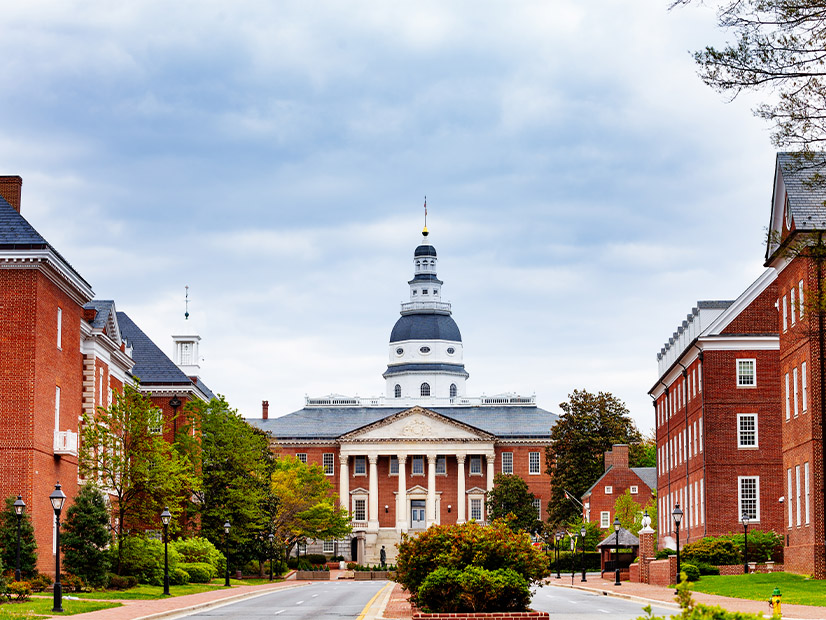The Maryland General Assembly is less than two weeks away from cross-over day — March 18 — when bills introduced in one house must have received a favorable vote and moved to the other chamber. Energy bills are very much in the mix as the legislative pace accelerates, and some bills already have crossed.
With lawmakers and Gov. Wes Moore (D) facing projections of rising budget deficits over the next few years, bills passed so far focus on removing financial and administrative barriers to deploying zero-emission technologies, such as limiting the restrictions homeowner associations can place on residents wanting to install solar panels or electric vehicle chargers on their property.
Thus far, only one bill calls for new funding — a modest $5 million per year in 2026 and 2027 — for a no-interest loan fund to help nonprofits install solar or other clean energy technologies to help them reduce their energy bills.
The following bills have already passed in the House of Delegates:
H.B. 366:This bill tightens existing law on the kind of restrictions homeowner associations can place on individual homeowners’ ability to install solar on their property. Current law says HOAs cannot set restrictions that “significantly” increase the cost of installation of a solar system or “significantly” decrease its efficiency. The update caps installation cost increases at 5% and system output decreases at 10%. It passed by a vote of 100 to 38 on Feb. 29 and has moved to the Senate Judicial Proceedings Committee.
H.B. 159: Similar to 366, this bill would prohibit HOAs from restricting home or condominium owners who want to install EV chargers in their assigned parking spaces. If an HOA requires an application to install an EV charger, it would have 60 days to process the application. If no action were taken during that time, the application would be considered approved. The home or condominium owner would be responsible for installation, operation and maintenance costs. It passed 114-23 on Feb. 15 and was referred to the Senate Judicial Proceedings Committee.
Bills passed in the Senate include:
S.B. 169: This bill would establish a Green and Renewable Energy for Nonprofit Organizations Loan Program at the Maryland Energy Administration, to be used to provide no-interest loans to nonprofits to install clean energy equipment to help them reduce their energy bills. Under the law, the governor would be authorized to budget $5 million per year for the loan program in 2026 and 2027. It passed 44-0 on Feb. 14 and was referred to the House Economic Matters and Appropriations committees.
S.B. 258: This bill would raise the energy conservation targets for state-owned buildings, from a 10% cut in energy consumption below 2018 levels by 2029 to a 20% cut by 2031, and would require the Department of General Services to audit at least 2 million square feet of the buildings it oversees annually. Also, the Maryland Green Building Council would be required to update its High Performance Green Building Program for new buildings and major renovations to ensure it is aligned with the state’s goal of reaching net-zero emissions by 2045. It was approved 37-9 on Feb. 29 and referred to the House Environment and Transportation Committee.
S.B. 337: This bill would expand membership on Maryland’s Commission on Climate Change to include the secretary of emergency management and the chair of the Public Service Commission or their representatives. Created in 2015, the commission advises the governor and General Assembly “on ways to mitigate the causes of, prepare for and adapt to the consequences of climate change.” It cleared 46-0 on Feb. 15 and was referred to the House Environment and Transportation and Economic Matters committees.




